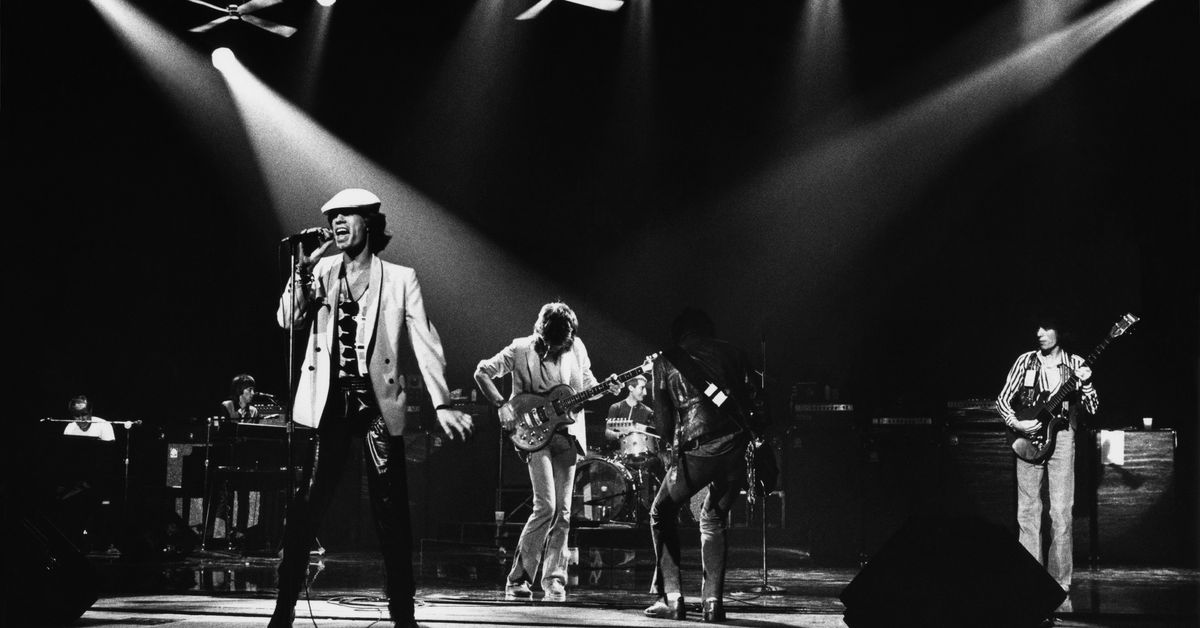
A collection of at least 75 rare performances by the Rolling Stones briefly appeared on a brand-new YouTube account on New Year’s Eve, then vanished just a day later, as spotted by Variety. The uploads could have been the work of a dedicated pirate, but copyright lawyers have another theory: ABKCO Music & Records, which administers the rights to the band’s 1960s catalog, uploaded them intentionally as a way to extend their hold on the recordings’ copyrights in Europe.
All the recordings turned 50 years old in 2019, meaning they were slated to become public domain in the European Union unless they were published in some form before the end of the year. But it’s unclear if fleeting YouTube uploads are enough to satisfy the EU’s publishing requirements, according to Zvi S. Rosen, lecturer at the George Washington University School of Law. “It’s really kind of pushing the edge of what’s possible under the law,” Rosen tells The Verge.
The videos were uploaded to a YouTube account called 69RSTRAX, and as stated by Variety, were mostly live concerts and alternate versions of songs from the Let It Bleed and Sticky Fingers albums, all recorded in 1969. A Google cache of the 69RSTRAX page shows videos were uploaded with titles like “The Rolling Stones – “(I Can’t Get No) Satisfaction” – Oakland Coliseum Arena (Early Show) 11/9/69.” Variety says the videos bore “official copyright language” and much of the audio was low quality or tampered with. Some were overlaid with “a dial-tone-like sound as loud as the music,” presumably to detract would-be audio rippers. Variety says the videos were removed on January 1st, but they weren’t entirely — they were just made private.
In the EU, sound recording copyrights are protected for 50 years after they’re made, but that protection can be extended to 70 years under a “use it or lose it” clause. Basically, the provision says that a recording’s copyright is 70 years, so long as the recording is “lawfully communicated to the public” at any time within the initial 50-year term.
If a copyright owner doesn’t do anything with a recording in that 50-year window, then it goes to the public domain.
This clause was designed to protect performers and prevent recordings that labels thought would be less commercially viable from sitting in company vaults. Performers can issue a notice of termination if the label hasn’t done anything with their material in that 50-year time frame, and then the copyright owner has a year to exploit the material in order to retain and extend the copyright.
But what meets the definition of exploiting material under EU copyright law? The directive’s language is loose, with no guidelines for what “available” means, or how many copies of a recording constitutes “sufficient quantity,” says law firm Hughes, Hubbard & Reed. Labels have found tricky ways to take advantage of this ambiguity to extend copyright ownership. For example, Sony Music pressed 100 CDs with rare Bob Dylan recordings and offered limited download access to online buyers in France and Germany. In 2013, Apple Records and Universal Music Group briefly sold a bunch of demo recordings and performances by the Beatles on iTunes in Asia, Australia, the Middle East, Europe, and North America in order to prevent them from falling into the public domain.
ABKCO has reportedly done this before. In December of 2016, 30 unreleased recordings by the Rolling Stones from 1966 were uploaded to YouTube, following the same pattern. They were mostly live recordings and alternate takes, the channel had no previous uploads, and the videos were switched to private mode shortly after being published.
Although there’s no concrete evidence that links ABKCO directly to these YouTube accounts, the timing of their creation, the material uploaded to them, and the fact that the videos were made private instead of removed — indicating no copyright takedown notices were issued — all point to the EU copyright extension as a plausible theory.
But if ABKCO did intentionally muck up these audio files, upload them to this random YouTube account, and only had them visible for a day, Rosen says it’s questionable whether that meets the directive’s threshold of releasing the recordings to the public.
While YouTube is a hotbed for arguments over copyright infringement in the United States, it’s fascinating to think that it’s potentially being used as a platform to establish copyright in other parts of the world, thanks to laws like the EU copyright directive. Whether a brief YouTube upload counts as an official release in court is another matter.
Of course, there’s also the possibility that this isn’t some long-term label play. Perhaps some random person had a collection of rare recordings from the Rolling Stones, made a burner account on YouTube, decided to upload it all just before New Year’s Eve, and then changed them all to private a day later. But that’s a lot of effort with no clear payout, and there was a clear incentive for ABKCO. As Rosen says, “Why the hell else would someone do this?”
https://www.theverge.com/2020/1/2/21046855/youtube-abkco-music-records-rolling-stones-european-union-copyright-rarities

